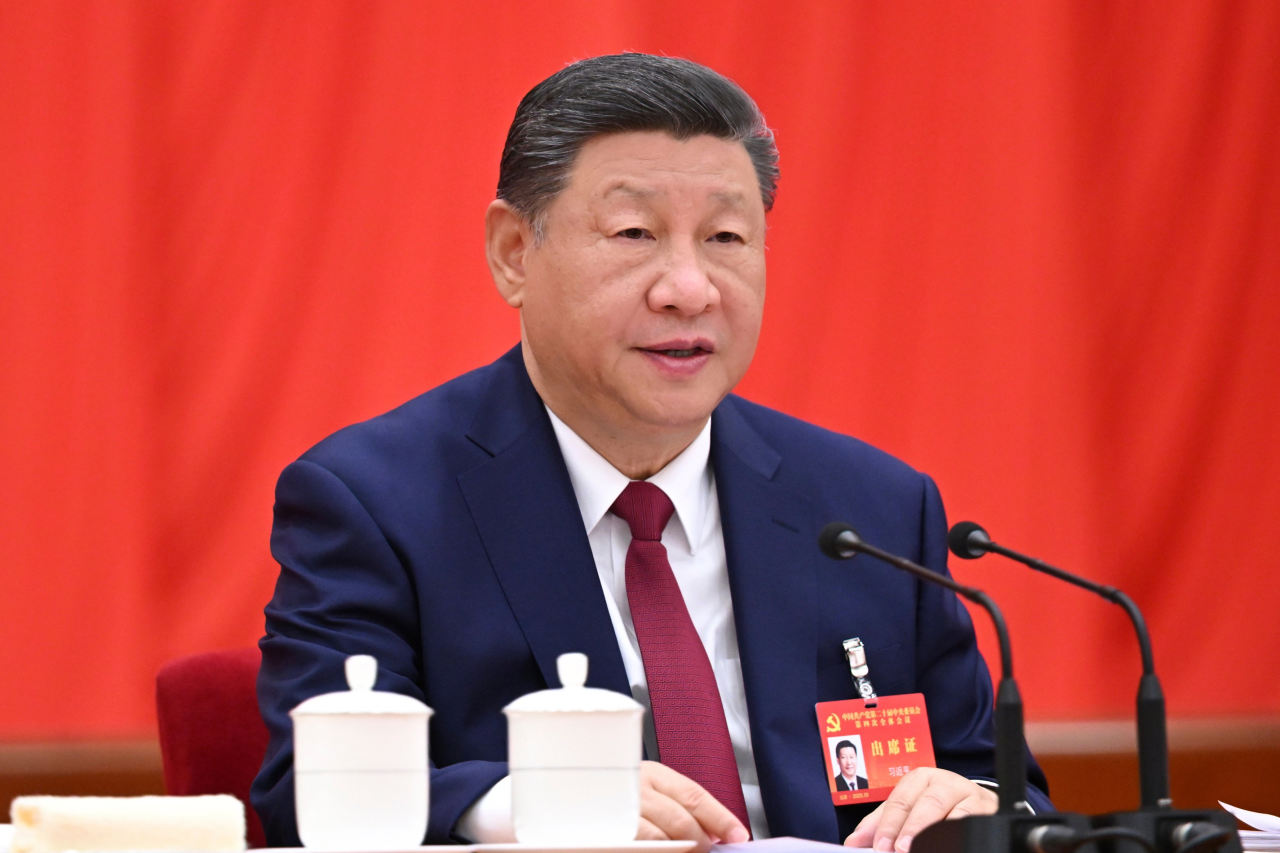World
Xi Jinping Pressures U.S. on Taiwan Independence Stance

China’s President Xi Jinping has intensified pressure on the United States regarding Taiwan, urging Washington to oppose any moves towards the island’s independence. This statement comes as tensions between the U.S. and China continue to escalate, particularly in relation to Taiwan’s political status.
In a recent address, Xi emphasized the importance of maintaining stability across the Taiwan Strait. He underscored that any declaration of independence by Taiwan would lead to severe repercussions. This warning aligns with the Chinese government’s long-standing position that Taiwan is a part of its territory and should not pursue separate governance.
U.S. Response to China’s Demands
The U.S. has maintained a policy of strategic ambiguity concerning Taiwan, supporting the island’s democratic governance while officially recognizing the One China policy. Donald Trump, the former U.S. president, is expected to address this issue in his upcoming remarks scheduled for January 2025. During his previous term, Trump took a more confrontational approach towards China, which included arms sales to Taiwan and high-profile visits by U.S. officials to Taipei.
Xi’s remarks come as the Chinese Communist Party prepares for the upcoming National People’s Congress, where issues concerning national sovereignty and territorial integrity are likely to be central themes. Chinese officials have reiterated that they will not tolerate any actions perceived as stepping towards Taiwan’s independence.
The relationship between China and Taiwan remains delicate. In recent months, military drills by the People’s Liberation Army near Taiwan have raised alarms in Washington and among Taiwan’s government officials. The U.S. has responded by increasing its support for Taiwan, including defensive arms sales and military training initiatives.
Implications for Regional Stability
The implications of Xi’s statement extend beyond just U.S.-China relations; they could significantly impact regional stability in East Asia. Taiwan’s strategic location and its democratic governance make it a focal point in the broader geopolitical struggle between China and the U.S.
Analysts suggest that any aggressive action from China could trigger a response from the U.S. and its allies in the region, including Japan and Australia. The potential for miscalculation in this high-stakes environment is significant, with both sides facing pressure from hardline factions within their governments.
As the situation develops, international observers will be watching closely for any shifts in U.S. policy or Chinese military posturing. The outcome of this ongoing tension could shape the future of U.S.-China relations and the stability of the Indo-Pacific region for years to come.
In conclusion, Xi Jinping’s recent remarks highlight the continuing friction over Taiwan and signal a pivotal moment for U.S. foreign policy. How the Biden administration navigates this challenge could have lasting implications for both American interests and the future of Taiwan.
-

 Science3 months ago
Science3 months agoUniversity of Hawaiʻi Joins $25.6M AI Project to Monitor Disasters
-

 Business3 months ago
Business3 months agoForeign Inflows into Japan Stocks Surge to ¥1.34 Trillion
-

 Entertainment2 months ago
Entertainment2 months agoHudson Williams Gains Popularity as Breakout Star on Heated Rivalry
-

 World3 months ago
World3 months agoBoeing’s Merger with McDonnell Douglas: A Strategic Move Explained
-

 Science2 months ago
Science2 months ago$1.25M Grant Advances Hawaiʻi’s Real-Time Hazard Monitoring
-

 Entertainment3 months ago
Entertainment3 months agoSydney Sweeney Embraces Body Positivity Amid Hollywood Challenges
-

 Top Stories3 months ago
Top Stories3 months agoBOYNEXTDOOR’s Jaehyun Faces Backlash Amid BTS-TWICE Controversy
-

 World3 months ago
World3 months agoFrench Film Explores Group Therapy in ‘Group – The Schopenhauer Project’
-

 Top Stories3 months ago
Top Stories3 months agoUrgent Farewell: Joleen Chaney Leaves Legacy at KFOR
-

 Top Stories3 months ago
Top Stories3 months agoMarc Buoniconti’s Legacy: 40 Years Later, Lives Transformed
-

 Lifestyle4 months ago
Lifestyle4 months agoKelsea Ballerini Launches ‘Burn the Baggage’ Candle with Ranger Station
-

 Top Stories3 months ago
Top Stories3 months agoCarson Wentz Out for Season After Shoulder Surgery: Urgent Update









